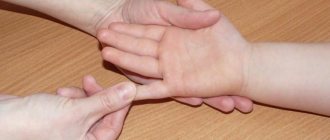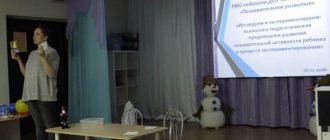Structure and types of questionnaires
The survey is carried out several times a year and allows you to collect personal information and solve current problems of education and training.
Based on the objectives of the survey, social or thematic questionnaires are used.
The standard questionnaire for parents in a preschool institution consists of three blocks.
- The introductory part contains a brief explanation of the purpose of the survey, with explanations of the rules for filling it out and, if necessary, guarantees anonymity.
- The main part consists of questions on the topic of the survey.
- The socio-demographic part involves identifying the basic biographical data and social status of parent respondents.
The survey provides important information on issues of interest to the educator (psychologist, speech therapist and other specialists), after analyzing which, teachers plan work on organizing educational activities.
Some questionnaires are designed specifically for parents, with the goal of helping them find out the child’s readiness for preschool education and school, understand adaptation problems, increase the level of pedagogical knowledge, improve the quality of communication with the child: “Do you know your child?”, “Are you ready to become parent of a first-grader?”, “Conflicts and the child,” etc.
Questionnaire for kindergarten parents, let's get to know each other
In the first junior group of kindergarten, the child learns about the world of social relations in which he grows up. The baby develops the norms and foundations of communication skills, and speech develops at a rapid pace. There is a difficult process of adaptation to kindergarten.
Properly structured work with the parent community allows the teacher to get to know their students better, receive feedback from moms and dads, and generally more effectively organize the educational process in the younger group of preschool educational institutions.
The main characteristics of children attending the first junior group at the age of 1.5-3 years are increased sensitivity to separation from their mother and fear of new things. Often, children’s adaptation to preschool education is painful, and both children and parents experience stress. In addition, parents often lack high-quality information about the life of a preschool institution and the optimal conditions for the development of children.
The main goal of working with parents of children under 3 years of age is to combine the efforts of the family and kindergarten for the successful adaptation of preschool children to preschool educational institutions, their upbringing and development. In the first junior group, work with parents is aimed at providing the child with education and the most comfortable conditions for staying in kindergarten. Parent events for the first junior group of kindergarten have their own characteristics, but in general they are similar to meetings in any kindergarten group.
The goal of a particular event for parents can be anything, but in general it will lead to achieving the main goal. An increase in the number of goals leads to an automatic increase in the number of tasks with the help of which the goals will be achieved. To avoid negativity and wasted time and effort, you should remember that there is only one goal, and the tasks that implement it are somewhat advisable not to set more than 10 tasks.
Trust and active interaction between the child’s parents and the kindergarten form a morally and mentally healthy personality. Any event for parents can combine several forms of work.
Separately, we should consider such a form of work as leisure time with parents. It could involve holding a party in kindergarten or going for a walk together in the forest. It is important to remember that this form of work with the parent community requires long and competent planning, as well as painstaking preparation. After all, for children such events are not a vacation at all, but a non-standard form of education, an opportunity to gain new knowledge and emotions. Therefore, it is better to discuss all possible details and nuances with parents at the preparation stage of the event.
You can learn more about the features of working with parents in kindergarten from our article - Interaction between family and kindergarten.
Parent meetings for children in the first junior group are the beginning of interaction between parents and the educational institution. Even if the child is not the first in the family, his path in kindergarten will be different from that of his brothers and sisters. Therefore, for the parents of the baby, not everything will be repeated; some things will be the first time. It is important that the very first year of kindergarten is successful, joyful and educational for the child.
For this, both parents and educators will have to put in a lot of effort. The parent meeting is a key moment when it is checked how effective the interaction is and goals are set for the near future. At least 3 meetings are held throughout the year - at the beginning of the school year, in the middle and at the end. When working with parents, it is important to take into account the individual characteristics of each individual family.
Therefore, the teacher needs to establish friendly and trusting relationships with the parent community. To achieve such cooperation, you need to adhere to the following plan:. The information obtained is necessary for the teacher to find an individual approach to each child and to plan the direction of group classes.
The topic of the parent meeting is a combination of the needs of the parents and the goal set by the teacher. Therefore, the topic is mostly selected by the teacher, taking into account the characteristics of the parent community.
The form of holding a parent meeting should most fully reveal the topic at hand, and should also take into account the principles and ways adopted in the families of pupils. The teacher bears great responsibility for preparing the parent-teacher meeting. It is better to start preparing for the event in advance and adhere to the basic rules:. The purpose of the first parent meeting in the junior group is to establish contact with the students’ parents and jointly create plans for the upcoming school year.
Conducting a survey among parents allows us to find an individual approach to each child. Advice for parents helps them establish a trusting relationship with their child. As you can see, we have learned a lot, but we have even more to learn, and most importantly, teach children self-care.
And you must take an active part in this process. It often happens that a child in kindergarten eats, undresses and partially dresses on his own, but after some time at home he comes to kindergarten and we again teach him to eat, dress, etc. And when communicating with his parents, it turns out that at home you did everything for him , because it’s faster, more convenient, more accurate, etc.
Give children the opportunity to be independent, of course, according to their age. Summary of the meeting. In conclusion, I would like to say that together we will lay the foundation of friendly relations in kindergarten and in parent groups. We need to make sure that the child in kindergarten has fun, good, and interesting, so that he goes to kindergarten with joy, makes friends with the kids and returns home happy. We did a good job with you.
Solution: Select a parent committee consisting of:. Minutes are a written document that details the proceedings of a meeting.
It is necessary to record all decisions made, which must then be implemented in practice. The minutes of parent meetings should be accompanied by texts of speeches, consultations of group teachers and other specialists who spoke at the event.
Unfortunately, not all teachers consider it obligatory to maintain, register and store such documentation. It is important. The protocol is a kind of insurance for the teacher, confirming the legality of his actions and the administration of the preschool educational institution if troubles or controversial issues arise. Correct and timely completion of the protocol helps in resolving controversial issues and preparing for the next parent-teacher meeting. Most often, minutes of parent meetings are documents for internal use, so when creating them, they do not use a form and do not indicate the full name of the institution.
It is important to complete protocols in a timely manner, within 3 working days. The sample below shows the most commonly used abbreviated form of the protocol. Agenda of the parent meeting: 1. On the first question they heard: F. She he ……………. Next, the teacher invited the parents to jointly discuss this issue, express their opinions, suggestions, comments, questions, etc. In the protocol, the secretary specifically indicates who F. Decision-making by voting. For - ... person, against - ... person specifically F.
Open classes are held primarily to promote the socialization of children. Preschoolers develop the ability to focus on the lesson itself, without being distracted by outsiders. A child aged 1.5-3 years does not yet have this skill and the need to be close to the parent is high.
At the same time, the mother of one child is a stranger to the other. Conducting open classes for parents helps to develop stress resistance and communication skills in children, which, in turn, leads to increased socialization.
When planning an open session, it is important to consider that the goals of each event participant are different. The teacher wants to teach, develop and give the children something new and interesting, while the parent strives to see his child in different conditions.
Therefore, it is so important to clearly plan the lesson and try to take into account all the individual characteristics of children and their parents. It is important to seat parents correctly during an open lesson so that children are not distracted by them. The duration of continuous NOD in the first junior group does not exceed 10 minutes.
Typically, open classes are held without rehearsal, so they require long and painstaking preparation. There may be a rehearsal of only individual elements, such as poems, songs, that is, what children must learn to prepare in advance. But this is possible with children of the middle group.
In the younger group, only psychological and moral preparation of children for the event is possible. The teacher must clearly formulate the purpose of the open lesson, as well as the skills and knowledge of the children that it will need to consolidate. Once the goal has been determined, a theme can be formulated. It is important to ensure that the open lesson fits into the curriculum and has a connection with subsequent lessons.
When you already have a goal and topic, you need to make a list of tasks to be implemented in an open lesson. Then you can begin to select literature that should most quickly and easily solve the problems. You need to select the best tasks for children from the selected literature, which will: Using a standard scheme, the teacher draws up his own open lesson plan. After the tasks have been selected, a clear lesson plan should be drawn up. To do this, you need to develop a sequence of actions and think through moments of activity and calm.
Small children cannot sit in one place for a long time; they definitely need to switch from one type of activity to another. If some new technique or technology is used, it is advisable to try it out in other classes. And the last thing to think about is the control and safety of children’s activities.
Any event is first registered in the calendar planning of the entire institution, since it requires the involvement of other employees, for example, a psychologist, speech therapist, etc. Then an order is prepared for the entire institution.
You will need a list of all visual aids and devices that will be needed to conduct an open lesson. If you need to make some visual aids with your own hands, then you need to prepare everything in advance. Each item should be prepared and checked, preferably more than once. Parents must be invited at least 2 weeks, or better yet, a month.
When and where to survey parents
Questionnaires help educators and teachers prepare for parent-teacher meetings, so it is advisable to distribute questionnaires a week before the meeting.
You can offer to fill out mini-questionnaires at a parent meeting, setting aside a few minutes for this.
You can offer to complete some forms online, for example, by leaving a link on the official website of the preschool educational institution or in a group on social networks. Read how you can do an online survey in Google Forms.
Topics and purposes of the survey
The objectives of the questionnaire depend on the topic proposed in the questionnaire and the problems that need to be solved.
Sample questionnaire topics for parents of nursery children
- Questionnaire " Let's get to know each other . "
Goal : collect information about the composition of the child’s family, the social status of the parents.
- Questionnaire " Child's Social Passport " .
Goal : collect primary information about the child and his family for further planning of advisory activities and development of individual classes. It is advisable to include this type of questionnaire in the list of documents for registering a child in kindergarten.
- Questionnaire “ Hello, kindergarten! .
Goal : to find out the features of the upbringing and development of a preschooler in the family, for further individual work and helping the child during the adaptation period.
- Questionnaire “ How was the child’s adaptation in kindergarten .”
Goal : to identify the level of adaptation of the child in the preschool educational institution, positive or negative dynamics.
see also:
- Adaptation sheet for kindergarten.
Sample topics for questionnaires for parents in the younger group
- Questionnaire “Cultural and hygienic skills of your child.”
Purpose : carried out to assess the formation of cultural-hygienic skills and self-care skills.
- Questionnaire “ Games and Toys ”.
Purpose : to obtain and analyze information about parents’ attitudes towards children’s toys and children’s games.
- Questionnaire “ Child’s speech development .”
Goal : find out what work is being done by parents at home to develop the child’s speech in order to help the speech therapist and educators draw up an individual plan for working with the preschooler.
Questionnaire for parents “Let's get to know each other. Our family"
Questionnaire for parents
«Let's get acquainted"
OUR FAMILY
Dear parents!
We ask you to answer a number of questions that will help us get to know each other
with your family and further cooperate for the benefit of the child
(we guarantee confidentiality of information).
tell about your family
1. Full name child ______________________________________________________________________________
2. Date of birth (day, month, year) _______________________________________________________
3. Home address _____________________________________________________________________
4. Housing conditions (check): apartment, private house 1 room. 2 rooms
3 rooms and more
5. Living conditions of the child (separate room, corner in the common room, separate sleeping place, shared bed with one of the children, etc.) ___________________________________________________
6. Material conditions (check): good, satisfactory. unsatisfactory
7. Information about parents
MOTHER
:
FULL NAME. ______________________________________________________________________________
Age _______________Education__________________________________________________________
Place of work __________________________________________ tel.___________________________
Job title ____________________________________________________________________________
Hobbies, interests ___________________________________________________________________
How can you help the group?__________________________________________________________
______________________________________________________________________________________
FATHER
:
FULL NAME. ______________________________________________________________________________
Age ____________Education ________________________________________________________________
Place of work ________________________________ tel._____________________________________________ Position ______________________________________________________________________________
Hobbies, interests ___________________________________________________________________
How can you help the group _____________________________________________________
_____________________________________________________________________________________
8. What do you call your child at home __________________________________________________________
9. Self-care skills _________________________________________________________________
______________________________________________________________________________________
10. Does the child get sick often, what serious illnesses or injuries has he suffered ______________________
______________________________________________________________________________________
11. Other family members (full name, age, place of work, study)
children
_________________________________________________________________________________
______________________________________________________________________________________
Grandmothers and grandfathers
__________________________________________________________________________________________________________________________________________________________________________________________________________________________________________________________________
12. What are your family’s traditions (joint hikes, excursions, celebrating holidays and birthdays, visiting theaters, exhibitions, evening readings, joint activities, joint solutions to child problems, etc.)__________________________________________________________
____________________________________________________________________________________________________________________________________________________________________________
13. Who in your family is primarily involved in raising the child?
__________________________________________________________________________________________________________________________________________________________________________________________________________________________________________________________________
14. Your view on raising a child (qualities that you would like to develop in him) ________________________________________________________________________________________________________________________________________________________________________________________________________________________________________________________________
15. Principles of upbringing in the family (strict, demanding, gentle, democratic, use persuasion, fulfill the child’s wishes, allow him to do as he wants)
penalties
_______________________________________________________________________
incentive measures
_______________________________________________________________________
16. Do you and your child need consultations with a psychologist, speech therapist, pediatrician, or teachers? (underline as necessary and indicate the topics of consultation that interest you) ___________________________________________________________________________________________________________________________________________________________________________________________________________________________________________________________________________________
17.What do you like most about your child? ______________________________________________________________________________________________________________________________________________________________________________________________________________________________________________________________________________________________________________________________________________________________________________________________________________________________________________
______________________________________________________________________________________
18.What upsets you most about your child? ______________________________________________________________________________________________________________________________________________________________________________________________________________________________________________________________________________________________________________________________________________
19. What role do you assign to the family in the upbringing, education and development of a child? ______________________________________________________________________________________________________________________________________________________________________________________________________________________________________________________________________________________________________________________________________________
20. What kind of help do you expect from kindergarten? _____________________________________________________________________________________________________________________________________________________________________________________________________________________________________________________________________________________________________________________________________
Thank you for your sincere answers!
Sample topics for questionnaires for parents in the middle group
- Questionnaire “ Satisfaction with the work of a preschool institution .”
Goal : to identify the level of compliance of social demands, needs and interests of parents with the work of the kindergarten and its teaching staff.
- Questionnaire “ Should I punish a child? "
Purpose : to obtain information about relationships in the family and the attitude of parents towards the preschooler.
- Questionnaire “Family Traditions”.
Goal : find out what family traditions are observed in the family, and how this affects the formation of the personality of a preschooler.
Sample topics for parent questionnaires for the senior group
- Questionnaire " Leisure activities in kindergarten ."
Purpose : to find out the attitude of parents towards the organization of holidays and entertainment in kindergarten, their level of satisfaction with the quality and quantity of entertainment.
- Questionnaire “ Child's physical development .
Goal : collect information about the child’s motor activity, find out what kind of participation parents take in the physical education of a preschooler, what difficulties they experience.
- Questionnaire “ Additional educational services in kindergarten .”
Goal : to find out the requests and wishes of parents for additional services organized at the preschool educational institution.
Questioning parents in the field of “Physical development”
Questionnaire 1
“MOTOR ACTIVITY OF A CHILD IN THE FAMILY”
Dear parents!
Your active participation in the survey will allow us to optimize the educational process and effectively carry out work to improve the health of your child, taking into account his individual characteristics.
1. Last name, first name of the child _____________________________________________________
2. Date of birth _____________________________________________________
3. Road to children. garden: on foot (how long?
)___________________
By transport (how long?
)_____________
4. Does your child go out on weekends:
No; Yes – 1 time per day; 2 times a day
5. Total walking time per day in good weather:
Up to 1 hour; up to 2 hours; up to 3 hours; more than 3 hours
6. Is your child friendly with physical education:
No; Yes (plays with a ball, rides a bike, exercises, etc.)
________________________________________________
7. Does the child do morning exercises: No; Sometimes; only on weekends; yes, always.
8. Do you do physical education with your child:
No; Sometimes; often.
9. If a child is involved in physical education and sports, then where:
In the sports section; on the sports ground near the house; on a walk; At home (there are exercise machines, a sports complex);
10. Do you harden your child at home: no; yes, regularly (specify which)______________________________________________________________
11. Does the child attend additional classes:
Yes; No.
12. If the child takes additional classes, indicate how many times a week and the duration of one lesson: in sports sections (which) ___________________________________________________________________
Music_________________________________________________________________
Dancing _________________________________________________________________
In the art studio ________________________________________________________________
Other ____________________________________________________________
Date of filling out the form: _____________________________________________
Questionnaire 2
"LIFE OF A CHILD IN THE FAMILY"
Dear parents!
We ask you to answer the questions. Your answers will help improve and coordinate our work together in raising healthy children.
1
.FULL NAME. ______________________________________________________________
2.
Does your child get sick often
? Yes no partially
3.
Do you carry out hardening procedures at home?
Yes no sometimes
Which?________________________________________________________
4.
Does your child follow a daily routine at home?
No, how will it work out?
5.
How often do you walk outdoors with your child?
Often rarely as it turns out
6
. Do you play outdoor games with your child?
No, when he asks
In which? ______________________________________________________________
7.
How do you assess your child's physical activity?
Sedentary mobile overly mobile
8.
Do you exercise with your child?
Yes;
No; Who cares for the child?
______________________
In what form?
_____________________________________________
9.
What physical Do you have equipment at home? ______________________________________________________________
10
. What forms of work with children in physical education are carried out in children? garden, do you know? ___________________________________________
_____________________________________________________________
11.
Does your child have a child? garden physical education uniform?
Shorts; t-shirt ; socks; sport shoes; No
12
.
Would you like to attend physical education classes in kindergarten? garden with your child? Yes no sometimes
How often? _____________________________________________________
13.
On what issue?
raising children Would you like help? hardening, outdoor games, physical activity of the child, etc.
_________________________________________________
In what form is it best to provide it? Consultation, individual. conversation, open lesson, family holidays, organization of the “Healthy Family” club, etc.___________________________






